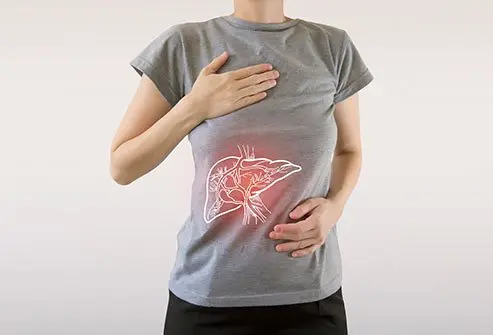What’s a Liver Cleanse?
Liver Cleanse Overview

If you search online for “liver cleanse,” you’ll find a long list of capsules and herbal formulas claiming to cleanse, detox, and protect your liver. Maybe you’ve also heard about special diets -- often involving juices, food restrictions, or fasts -- that promise to clear your liver of toxins.
The liver is essential for your health. Its job is to detoxify your body. The liver takes in nutrients and turns them into useful substances. It also takes in toxins and makes them safer or gets rid of them. The liver filters anything you eat or drink and any medicines or other drugs you take.
So what does it mean to cleanse or detox your liver? Do any of those programs or products really work? Liver cleansing diets and supplements supposedly help clear toxins from the liver and support liver health. But experts say these products don’t do much for your liver.
While researchers have conducted some studies, they weren’t big enough or precise enough to give any clear results. Here is information you should consider before committing to a liver cleanse.
Does a Liver Cleanse Work?
There’s no evidence to support detox diets. But there are some plants, minerals, herbs, and spices that might improve liver health or help the liver do its job better. These ingredients often turn up in products sold for their liver cleansing benefits. However, studies of their use in people is lacking in most cases. Here’s a list of some of them and what we know.
- Milk thistle: People have long used milk thistle, also called silymarin, for liver disorders. Studies showing efficacy are mixed. But one study showed that it improved quality of life in people who have hepatitis C, suggesting it might help with symptoms of liver disease. But people taking silymarin in the study didn’t show signs of improved liver health.
- Selenium: This is an essential mineral. Evidence suggests it helps get rid of mercury in animals, but it’s not clear that it does the same for people.
- Coriander: One study showed that this herb lowered cadmium in the livers of rainbow trout. It’s not clear what if anything that means for people.
- Chlorella: Studies in mice suggest that this green algae helped get rid of lead and mercury in several organs. In the liver specifically, the algae helped to lower lead but not mercury.
- Dandelion: People have used this familiar weed for liver problems. It’s safe to eat, but experts are uncertain about its health benefits.
Given the lack of evidence, cost, and risks, experts don’t recommend commercial diets or supplements for liver cleansing. Also, companies that sell supplements don’t need approval from the Food and Drug Administration. So just because you see supplements on the shelves at the store, that doesn’t mean they are effective or safe.
Many dietary and herbal supplements can cause liver damage. In fact, there’s a report that a tea sold for its ability to detoxify the liver led to acute liver failure. So take caution when trying herbal or dietary supplements.
How to Take Care of Your Liver
Rather than liver cleansing supplements or diets, experts say the following healthful habits will help keep your liver healthy:
- Eat a well-balanced diet with plenty of fresh, healthy foods.
- Maintain a healthy weight.
- Don’t drink too much alcohol.
- Avoid toxins in cleaning products, insecticides, or other chemical products. When you use them, make sure the room gets plenty of air circulation and wear a mask.
- Avoid sharing needles or having unprotected sex with multiple partners. These activities increase your risk for an infection that may cause liver damage.
- Wash raw foods and your hands before eating.
- Get hepatitis A and B vaccines.
- If you are at risk for liver disease or are worried about your liver, talk to your doctor about screening for hepatitis (liver inflammation).
Journal of Human Nutrition and Dietetics: “Detox diets for toxin elimination and weight management: a critical review of the evidence.”
InformedHealth.org: “How does the liver work?”
Michigan Health: “What does the liver do and how do I keep mine healthy?”
Johns Hopkins Medicine: “Detoxing Your Liver: Fact versus Fiction.”
Phytomedicine: “A randomized controlled trial to assess the safety and efficacy of silymarin on symptoms, signs and biomarkers of acute hepatitis.”
National Center for Complementary and Integrative Health: “5 Things You Should Know About Dietary Supplements for Hepatitis C,” “Dandelion,” “Using Dietary Supplements Wisely,” “‘Detoxes’ and ‘Cleanses’: What You Need to Know.”
JAMA: “Effect of silymarin (milk thistle) on liver disease in patients with chronic hepatitis C unsuccessfully treated with interferon therapy: a randomized controlled trial.”
Integrative Medicine Research: “Efficacy of curcumin/turmeric on liver enzymes in patients with non-alcoholic fatty liver disease: A systematic review of randomized controlled trials.”
Case Reports in Gastrointestinal Medicine: “Yogi Detox Tea: A Potential Cause of Acute Liver Failure.”
Hepatology: “Liver Injury from Herbal and Dietary Supplements.”
American Liver Foundation: “13 Ways to a Healthy Liver.”
National Institute of Diabetes and Digestive and Kidney Diseases: “What is viral hepatitis?”